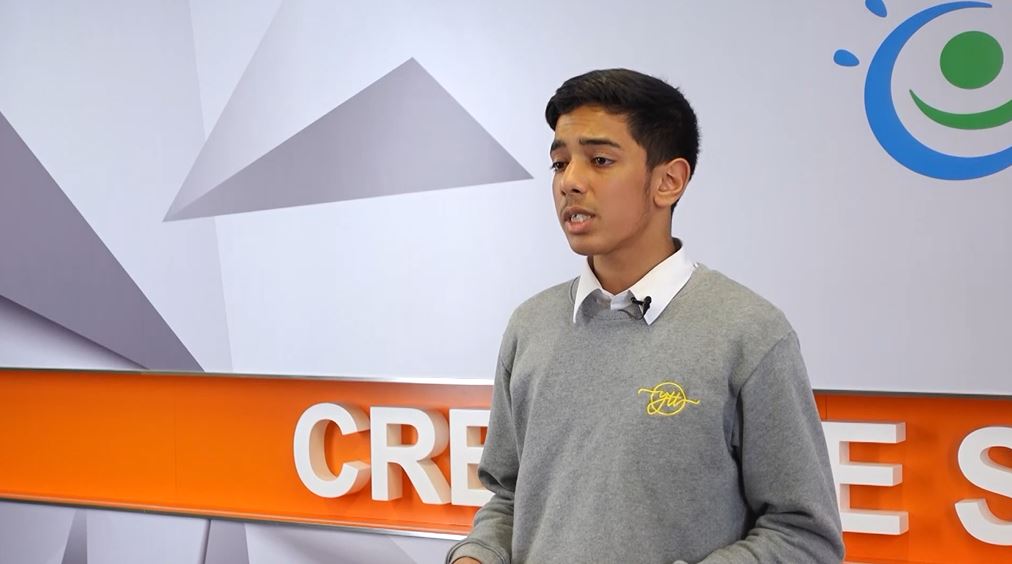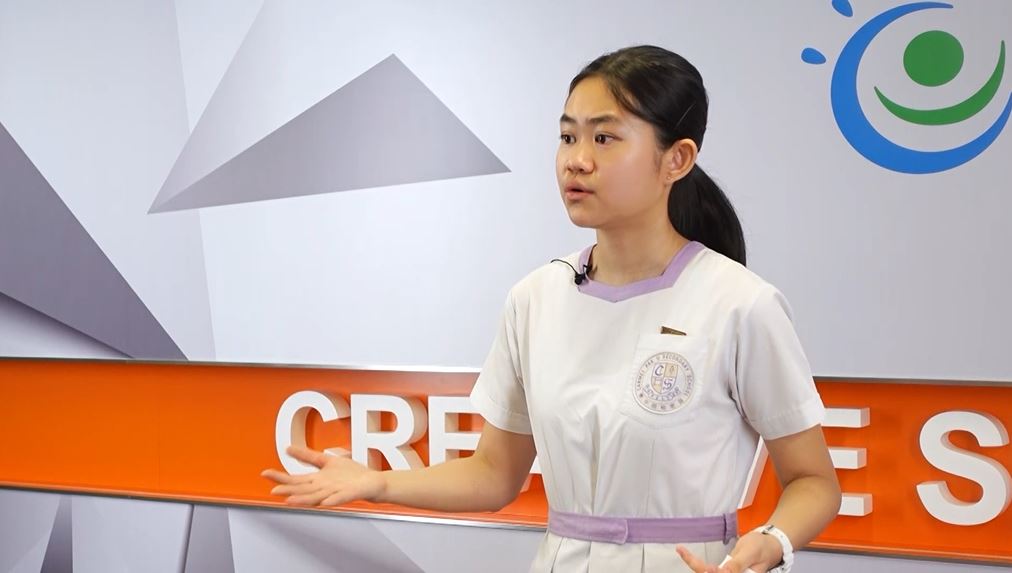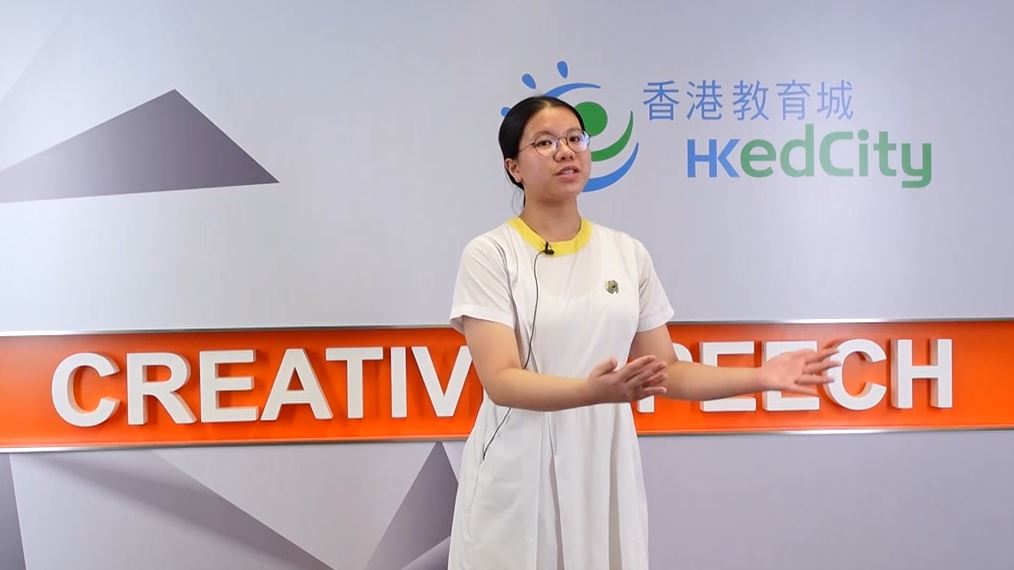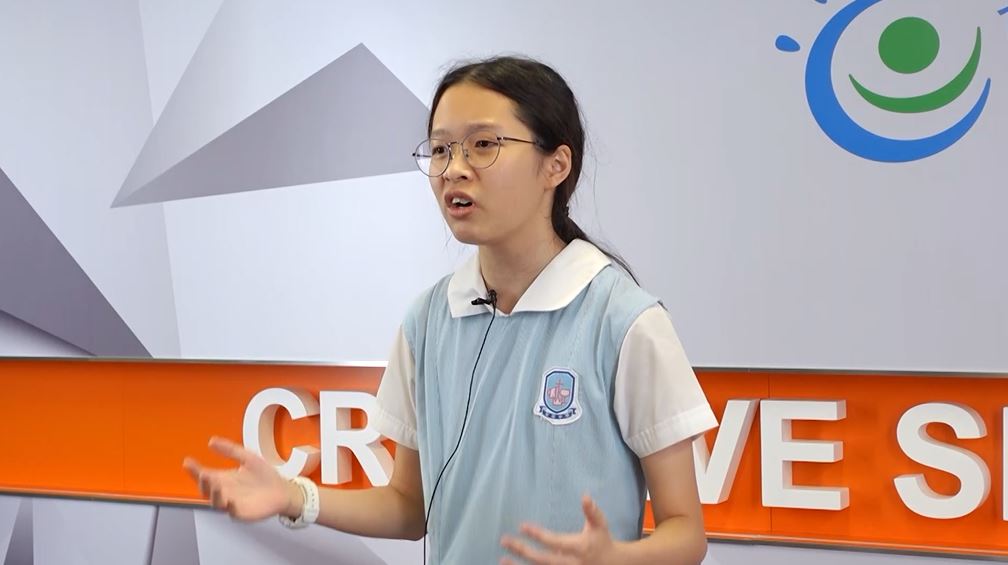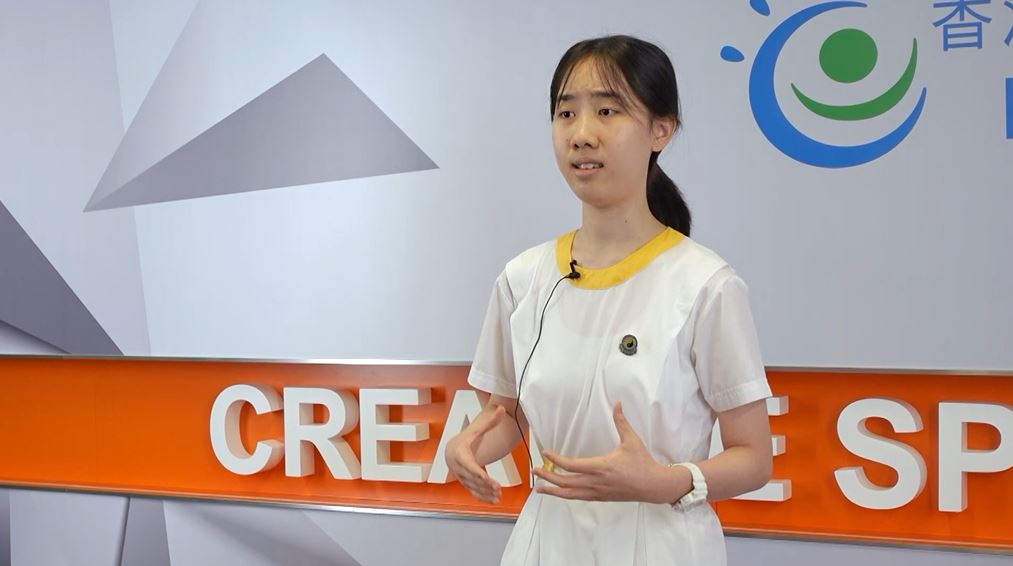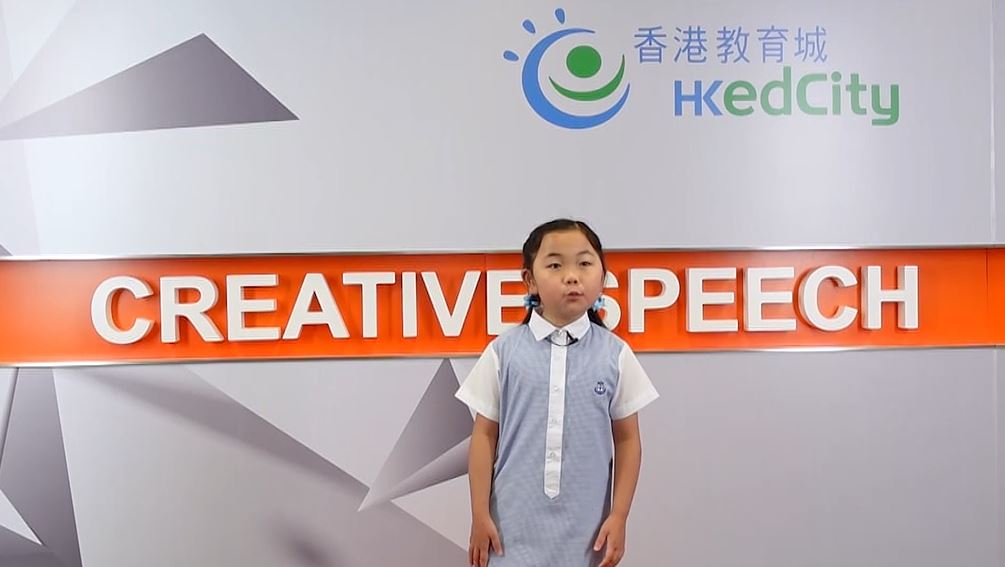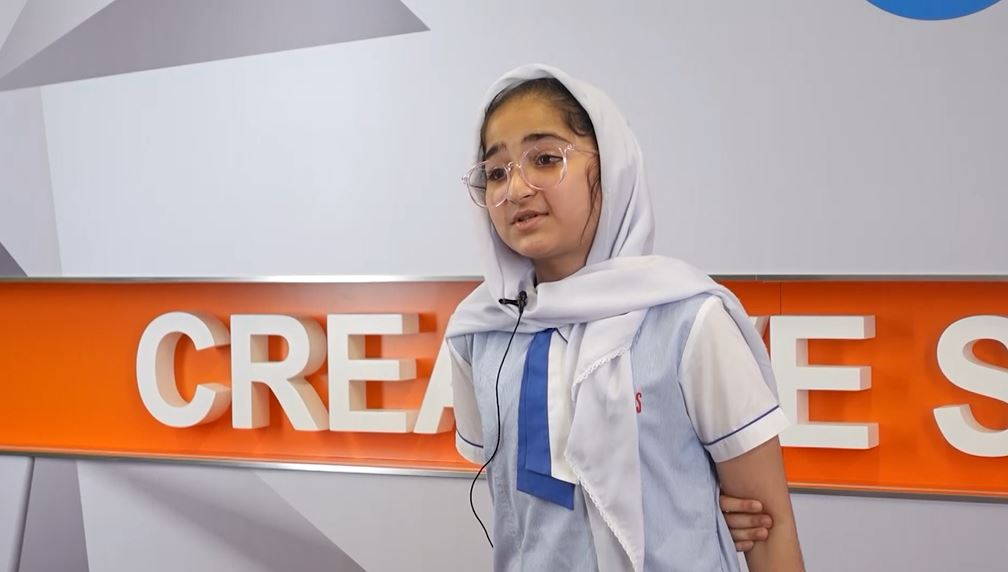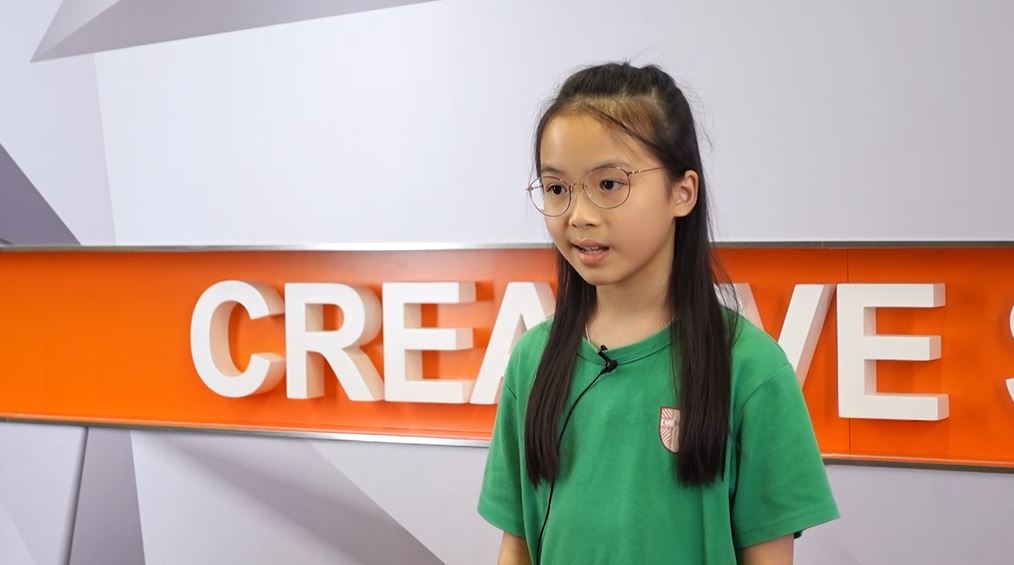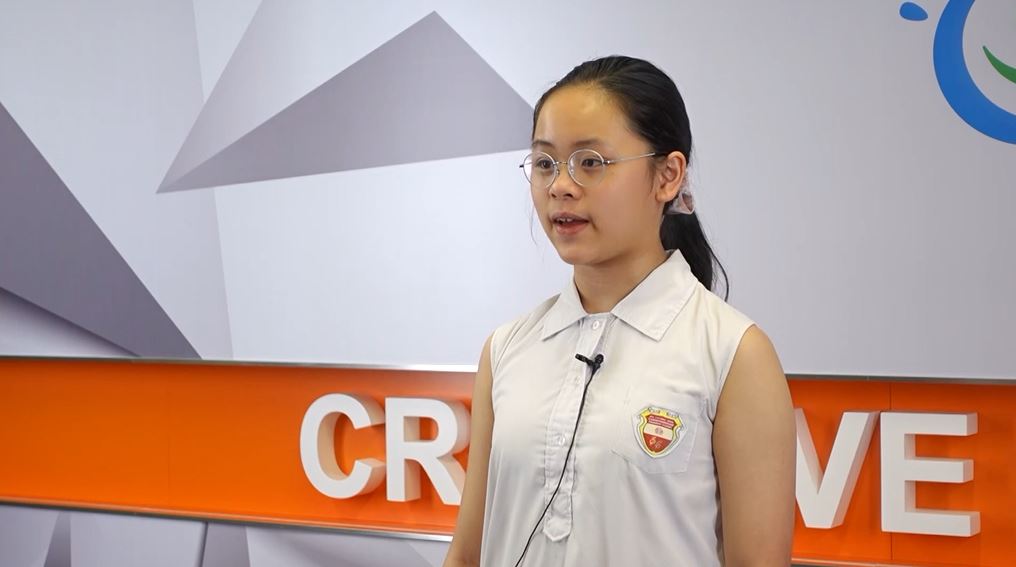

Creative Speech Competition (CSC) aims to empower students to speak their creative mind confidently while making a positive impact on their audience. Through recording / public speaking opportunities, students will develop their presentation skills and build confidence and self-assurance. Being a well-versed articulator of thoughts and an effective communicator with a positive mind enables students to understand others and express their opinions confidently in social settings. Ultimately,
- To promote creative thinking and stretch imagination in students.
- To enhance students’ presentation skills with confidence.
- To encourage students to think positively and show love, appreciation and kindness to society.
Levels of Entry
- Primary (P) Level (Primary 4 to Primary 6)
- Junior Secondary (JS) Level (Secondary 1 to Secondary 3)
- Senior Secondary (SS) Level (Secondary 4 to Secondary 6)
Award
Stage 1
All participants will receive a Certificate of Participation (e-Cert.) to recognise their work.
Stage 2
Certificates (“Distinction”, “Merit”, “Credit”) will be awarded to participants for their achievement.
Final Stage
Trophies and/or certificates will be awarded at the end of the Award Ceremony.
School Award
The Active Participation Award
(Will be awarded to the school with the highest proportion of submitted scripts to the total number of students in the school.)
All participants will receive a Certificate of Participation (e-Cert.) to recognise their work.
Stage 2
Certificates (“Distinction”, “Merit”, “Credit”) will be awarded to participants for their achievement.
Final Stage
Trophies and/or certificates will be awarded at the end of the Award Ceremony.
School Award
The Active Participation Award
(Will be awarded to the school with the highest proportion of submitted scripts to the total number of students in the school.)
Schedule*
| Date (2025) | Particulars |
| 16 January to 7 March | Registration and Submission Period |
| 27 January | Briefing Session 1 and Script Writing Workshop (ALL participants are welcome) |
| 31 March | Announcement of screening results |
| 5 April | Briefing Session 2 and Public Speaking Workshop (Shortlisted participants ONLY) |
| 26 April | Stage 2 Venue: Hong Kong Education City, Sha Kok Estate, Shatin |
| 2 May | Announcement of Stage 2 results |
| 17 May | Final Stage Venue: Hong Kong Education City, Sha Kok Estate, Shatin |
Details of Briefing Session 2
Click Briefing Session 2to view the overview of Stage 2 & Final stage requirements.
Competition Stages
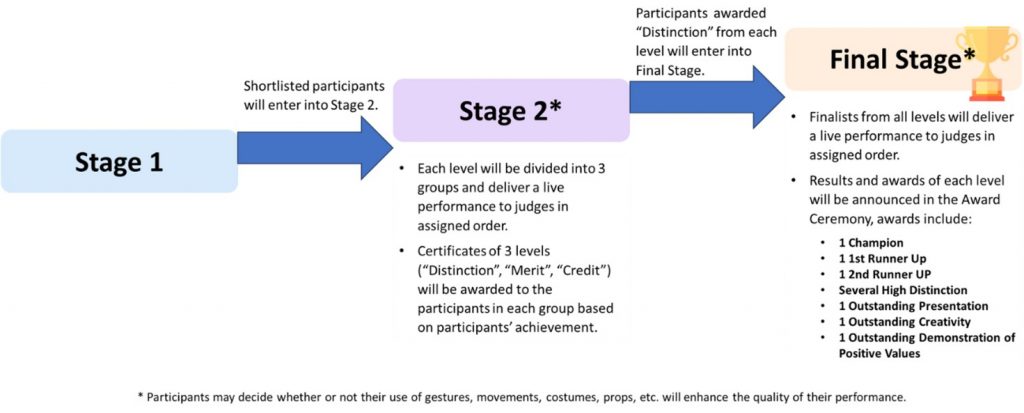
Competition Materials
a. Topics for Presentation
Participants can create their own script from ONE of the following seven topics. The script MUST demonstrate the appreciation of BOTH POSITIVITY and CREATIVITY. Participants who do not submit entries in accordance with the requirements will be disqualified.
b. Time limit
The time limits of the speech for the different levels are as follows:
For Primary (P) level, a script for a 3-minute speech;
For Junior Secondary (JS) level, a script for a 3-5minute speech;
For Senior Secondary (SS) level, a script for a 5-minute speech.
Participants can create their own script from ONE of the following seven topics. The script MUST demonstrate the appreciation of BOTH POSITIVITY and CREATIVITY. Participants who do not submit entries in accordance with the requirements will be disqualified.
| If I were a ______ (an animal) | It’s okay to be sad… |
| Sorry ______ (a person), I made a mistake | That day has come. Goodbye, ______ (a person) |
| How to forget the unforgettable | This is my uniqueness… |
| Thank you for being with me, I am not afraid of fear now | Finally, I know the way to find myself. Thank you, ______ |
| The worst day of my life | I will remember this saying for life |
| A world without the internet, I have more time to… | Something that I cannot live without |
| I grow up in school | I grow up in school |
b. Time limit
The time limits of the speech for the different levels are as follows:
For Primary (P) level, a script for a 3-minute speech;
For Junior Secondary (JS) level, a script for a 3-5minute speech;
For Senior Secondary (SS) level, a script for a 5-minute speech.
Judging Criteria
First Stage
The script will be judged by content and creativity. Demonstration of positive thinking and values in their speech is also essential.
Second and Final Stage
The Judging Panel will judge the performance of participants by presentation skills, content, and creativity. Demonstration of positive thinking and values in their speech is also essential.
The script will be judged by content and creativity. Demonstration of positive thinking and values in their speech is also essential.
Second and Final Stage
The Judging Panel will judge the performance of participants by presentation skills, content, and creativity. Demonstration of positive thinking and values in their speech is also essential.
PICCK scoring system
| Positive Mindset and Value | Innovation and Creativity | Communication and Collaboration | |
| Submit script | ✓ | ✓ | |
| Attend zoom briefing session cum workshop | ✓ | ✓ | |
| Shortlisted to Stage 2 | ✓ | ✓ | |
| Attend briefing session 2 cum workshop 2 | ✓ | ✓ | |
| Perform in Stage 2 | ✓ | ✓ | |
| Shortlisted to Final Stage | ✓ | ✓ | |
| Perform in Final Stage | ✓ | ✓ | ✓ |
| Win an award | ✓ | ✓ | ✓ |
Creative Speech Competition 2023 Highlights
Enquiries
About the competition:
joyce.lee@hkecl.net
2624 1096
For technical support:
info@edcity.hk
